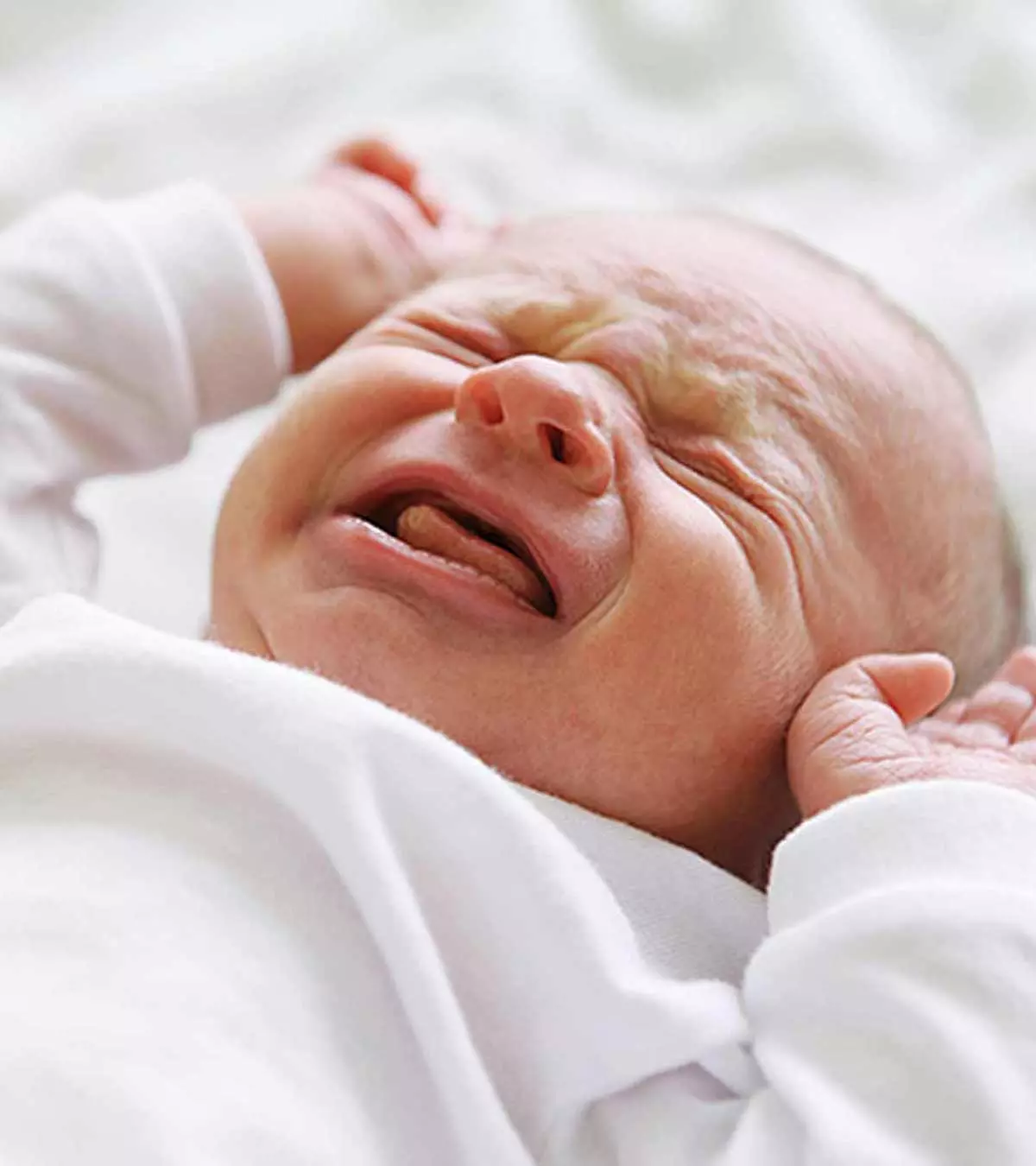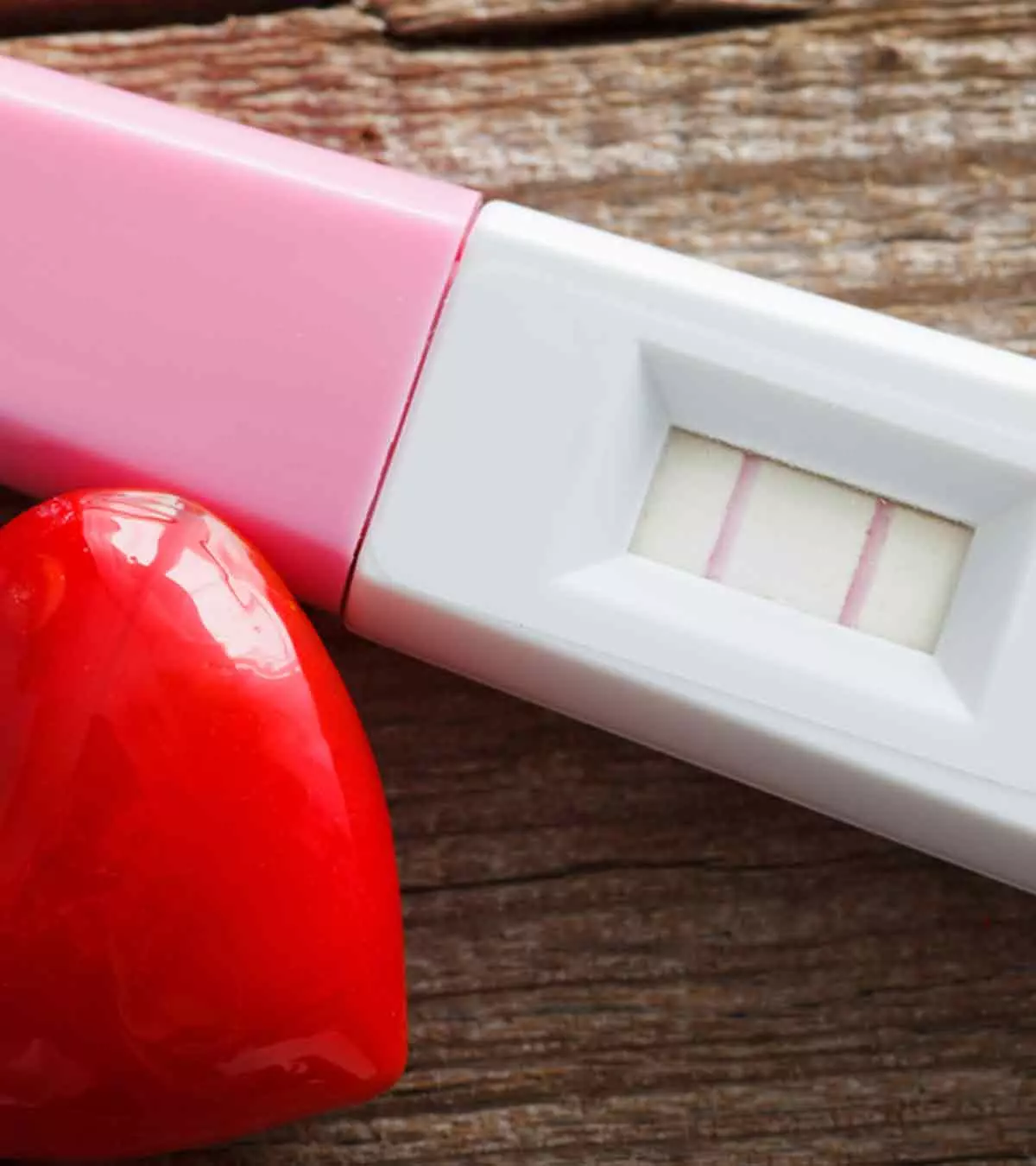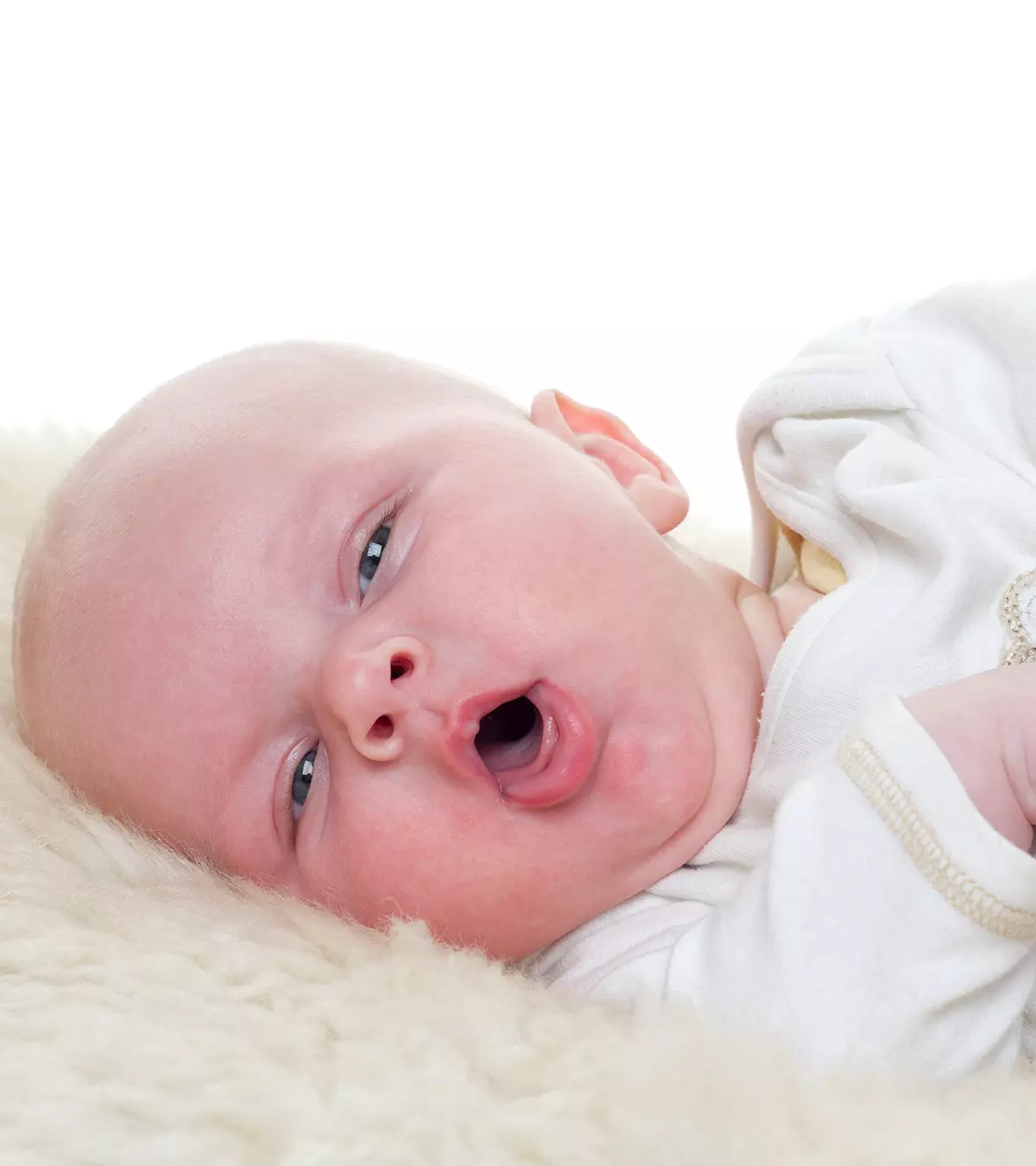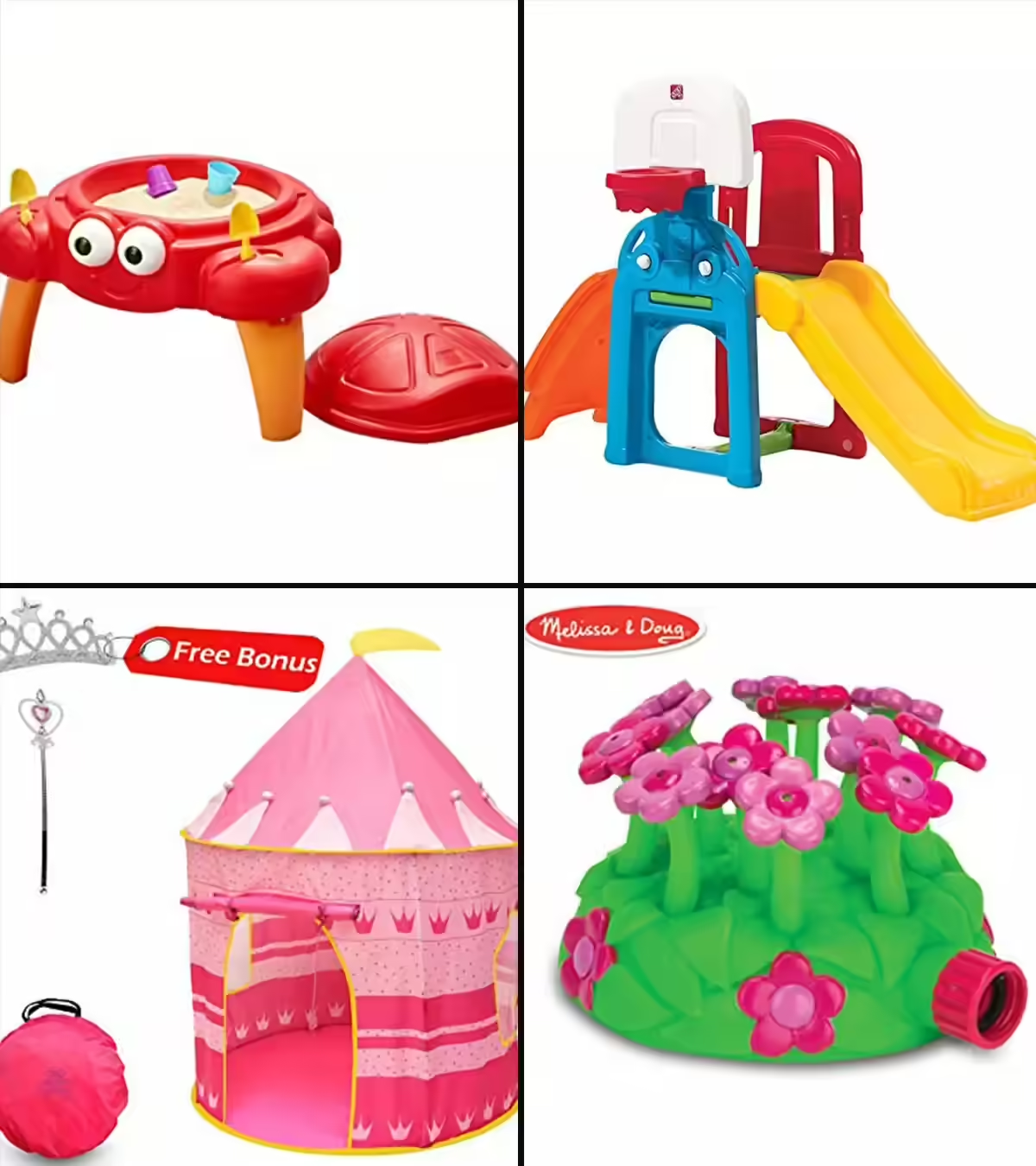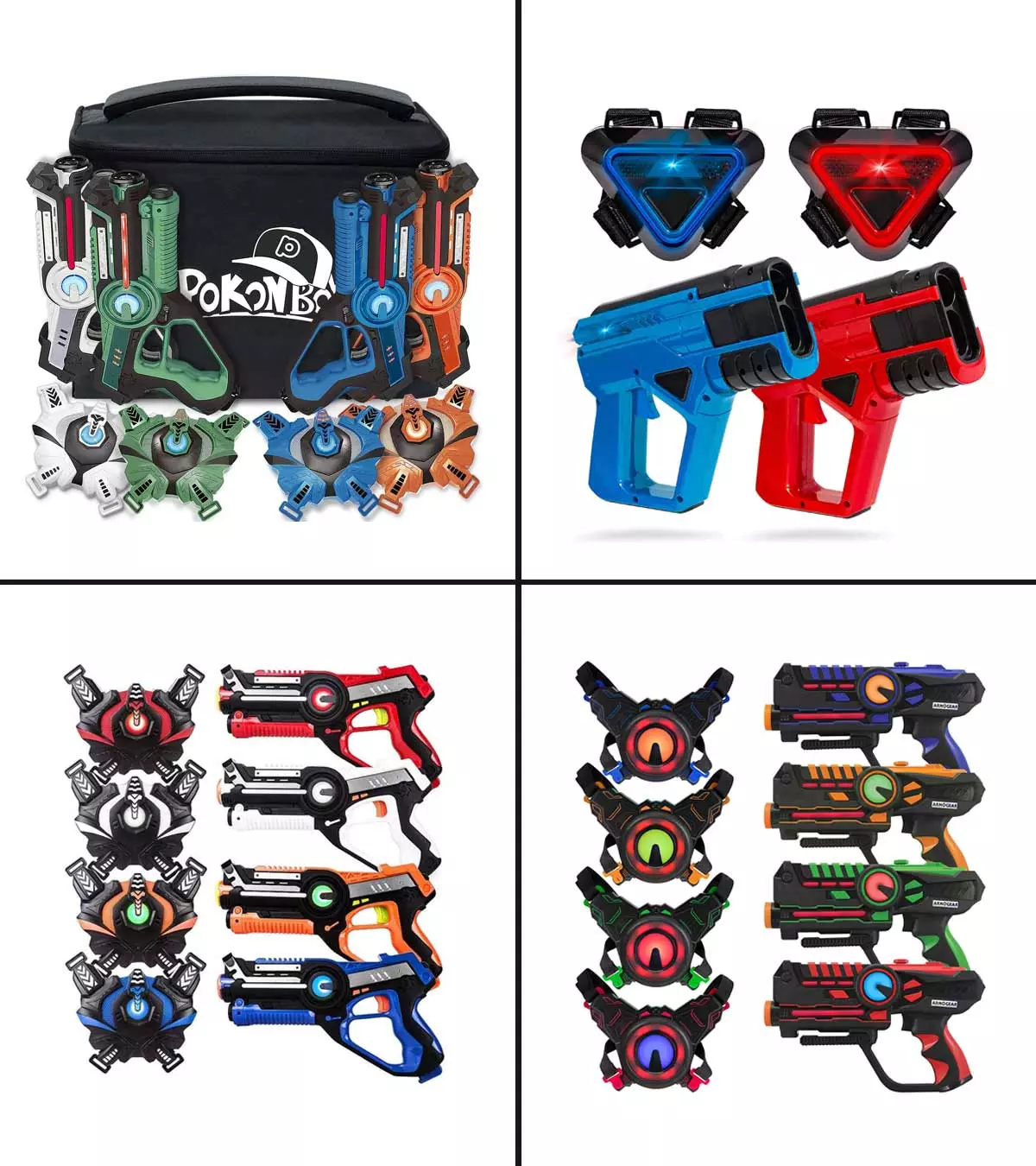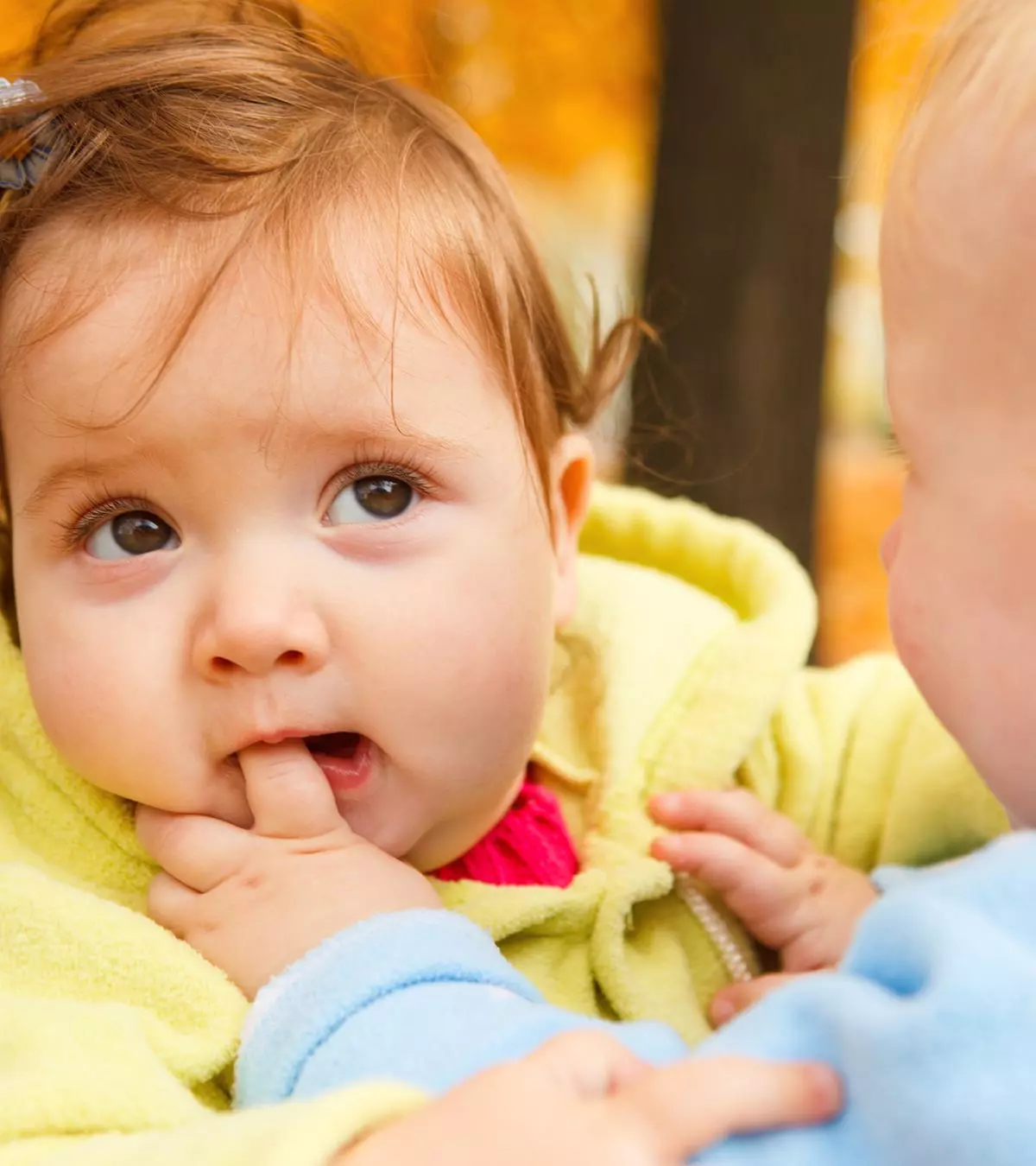

Image: ShutterStock
You may find toddlers trying to bite at things or someone’s arm for no apparent reason. But why do toddlers bite? You may find it difficult to figure out whether it is for venting anger and frustration or is something wrong with the child. Such behavior can even make parents worry about their child’s social and emotional development. If you are searching for answers to these questions, keep reading this post as we tell you if it is normal for toddlers to bite, why they do so, and what you can do in such situations.

Why Do Toddlers Bite?
There may be no explanation as to why a toddler bites, but there is always a trigger behind the behavior. Here are a few reasons why your toddler may resort to biting (1) (2):
- Venting frustration and anger: It is the leading cause of biting among toddlers. Toddlers do not have the vocabulary to express their emotions, which can be frustrating for them. Therefore, they may rely on biting to express that frustration.
Scenarios that can trigger biting include the inability to get a toy back from a sibling. Biting the sibling is the toddler’s way of saying “I am angry! Give back my toy.” A toddler may also bite when fussy, tired, or just hungry.
- Test cause and effect: A toddler may bite someone to test the response to the action. A toddler in daycare may bite his friend to check the reaction of a caretaker.
- Get attention: Yes! Toddlers can bite if they do not get the attention they seek from the parent or the caretaker.
- Teething: It can be counted as a valid reason for a toddler to bite. Teething can irritate the gums and biting helps ease the irritation and make the toddler feel better.
- Copying peers: A toddler may see another toddler in the playgroup bite and copy the action out of curiosity.
- Exploration: Younger toddlers may use their mouth to explore the world around them. In their quest to know something or someone, they may end up biting. For instance, a young toddler curious about the family cat’s tail may put it in the mouth and bite.
- Being overwhelmed and self-assertive: Sometimes toddlers can get overwhelmed by whatever is happening around them. For example, when playing a game in a group, the toddler may get so excited that he/she would not know how to regulate those feelings. In the excitement, the toddler may end up biting someone.
- A toddler can direct the biting towards an individual or an object. Sometimes, they may direct it towards themselves.
Can Toddlers Bite Themselves?
Yes. Toddlers can bite themselves too. Self-biting is often motivated by frustration or teething and could be restricted to fingers. Toddlers with autism may bite themselves repeatedly to vent out their frustration (3).
Is It Normal For Toddlers To Bite?
Yes. Pediatric experts state that biting is normal during toddlerhood and is considered a standard part of the toddler’s traits. The activity does not have a lasting significance or impact (4). But it is your responsibility as a parent to teach your toddler that this is inappropriate social behavior. you as a parent will not like seeing your little one biting everything and everyone around, so something has to be done about it.
What To Do When The Toddler Bites?
The situation can get awkward when the toddler bites someone. There is likely to be a lot of drama, but keeping a cool head can help resolve the problem quickly. Here is what you should do when your toddler bites:
Step 1: Take the toddler away from the situation and the person or thing that was bitten
- Calmly pull the toddler away from the person he/she just bit. Do not yell, scold, or make facial expressions that communicate anger and disapproval. Even disapproving attention is enough for a toddler to repeat their actions.
- If the toddler was playing outdoors with a group of kids, then take him/her to another group of toddlers. If they bit you or a sibling, then take them to another room.
- Offer a simple explanation appropriate to your child’s level of development. Generally “We don’t bite” is sufficient. Long explanations about how it is wrong and hurts will likely not be helpful. Toddlers generally do not intend to hurt others with this behavior.
Letting the toddler know of the consequences of biting with simple language and removal from the situation is the first step to minimize the chances of repeated biting.
Step 2: Focus more on the results of biting
- If you continue chiding the toddler for biting, then it will become a means of gaining attention from those around.
- You may want to apologize to the toddler or the person who got bit. But recognize that your toddler did not intend to hurt them or damage a toy. Take care not to shame your child for their behavior.
Step 3: Identify the problem
- Next, figure out what the reason is for the behavior. Ask questions – Did the toddler bite because he/she was stressed in some way like being hungry or tired? Did they bite a sibling because they took away the toy? Are they experiencing teething pain?
- Being curious about the reason for the behavior will help you know how to address it and avoid escalating the biting. While the above steps help in immediate correction, you need a bigger plan to stop the biting once and forever.
While the above steps help in immediate correction, you need a bigger plan to stop the biting once and forever.
How To Stop And Prevent A Toddler From Biting?
You can stop and eventually break the habit of biting through these steps (5) (6):
- Discourage the biting: Firmly tell the toddler that biting hurts and that it is not a good thing to do. Say ‘No, biting hurts!’ or “I know you are frustrated but you should not bite your friend.” Typically a toddler does not know why they bit so asking for an explanation will not be helpful. When you make a calm yet discouraging remark to biting, the toddler would understand that biting is wrong.
- Keep playgroups small: If the toddler tends to bite a lot at daycare, in addition to setting clear limits on the behavior, assess the ways in which that environment is stressful and beyond their ability to cope. If you child is overstimulated in a large group, see if there is opportunity to down the size of the playgroup. Fewer players in games mean less sensory inputs and may decrease the biting behavior.
- Tackle frustration before it gets the toddler: If your toddler seems frustrated and fussy, ask questions like “What happened? Do you need something?”, “Are you feeling hungry?”, “Did your friend take away your toy?”. Asking specific questions is an excellent way to identify the exact problem making the toddler bite and tackle it right away.
- Give means to deal with frustration: As your toddler develops increasing language skills, they will have other means to express themselves and the biting behavior will naturally decrease. Giving expression to their feelings as you understand them helps them to manage their feelings before they have the capacity to express them in words. “I understand you feel upset that your brother took your toy, but we don’t bite.”
- Provide timely teething relief: Does the toddler nip at every rubbery, silicone toy? It is quite likely that he/she is going through a teething phase. Give them a teething toy or ring, which is a less destructive outlet for the sensation.
Frequently Asked Questions
1. Do toddlers bite to show affection?
Toddlers may go in for a kiss, but when they cannot hold their excitement, they may end up biting with no intentions of harming.
2. How long does the biting phase last in toddlers?
Biting is common, and usually stops when they are around three or three-and-a-half years old (7).
3. What do I do if my toddler bites at daycare?
Keep your calm, and ask your toddler why they bit the other child. Explain to them in crisp and direct sentences that they should not be biting. Comfort the child who was bit and apologize on your child’s behalf. If your child is above two years of age, you may also ask them to comfort the child who was hurt (8).
There are various responses to the question, why do toddlers bite? They may do so to express frustration, draw attention, teething, or simple exploration. Biting habit is not abnormal in toddlers, as per expert pediatricians. However, you may need to communicate that it is socially inappropriate to your little one. Use simple language to patiently tell your child the consequences of biting without shaming them for their behavior. Identifying the exact problem can help you tackle it the right way. Talk to your child’s pediatrician if your child does not grow out of biting behavior even after improving communication or other means of expression.
References
- Responding to your child’s bite, Vanderbilt University.
http://csefel.vanderbilt.edu/documents/biting-parenting_tool.pdf - Ouch! Biting hurts! Why is my toddler biting? Michigan State University.
https://www.canr.msu.edu/news/ouch_biting_hurts_why_is_my_toddler_biting - What are the symptoms of autism? Autism Speaks.
https://www.autismspeaks.org/autism-symptoms - Biting behavior in children: Normal or not? Ohio State University.
https://livesmartohio.osu.edu/family-and-relationships/worthington-56osu-edu/biting-behavior-in-children-normal-or-not/ - Why Children Bite, University of Rochester Medical Center.
https://www.urmc.rochester.edu/encyclopedia/content?contenttypeid=90&contentid=P02860 - Why toddlers bite and what parents and caregivers can do to stop it, Michigan State University.
https://www.canr.msu.edu/news/why_toddlers_bite_and_what_parents_and_caregivers_can_do_to_stop_it
Community Experiences
Join the conversation and become a part of our nurturing community! Share your stories, experiences, and insights to connect with fellow parents.
Read full bio of Claudia M. Gold
Read full bio of Rohit Garoo






